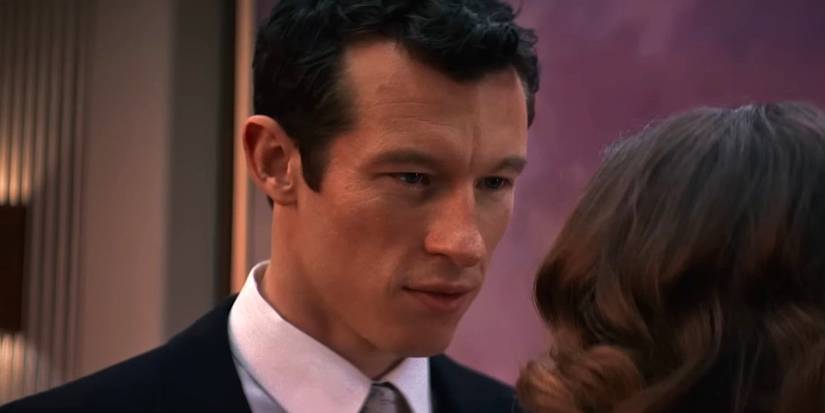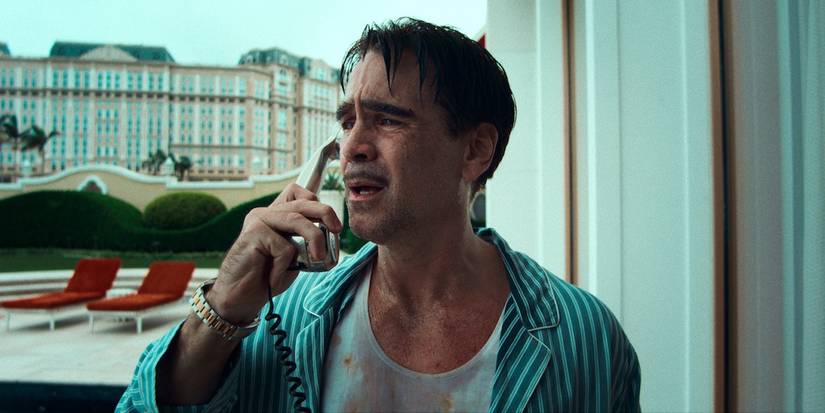Every year, the city of Toronto hosts more than 250 films, with over 1,000 screenings, attracting hundreds of thousands of people from the entertainment industry, press, and film lovers worldwide. 2025 marked the 50th anniversary of the Toronto International Film Festival, and after a few years hampered by COVID and the SAG-AFTRA strike, TIFF returned in full force. Tickets were hard to come by, blocked-off streets were packed, theaters were full, and whole casts and crews showed up for star-studded Q&As. Best of all, most of the movies were pretty good!
While Hamnet, which premiered at Telluride and not TIFF, took the People’s Choice Award, and Frankenstein, which launched at Venice, was named runner-up, Wake Up Dead Man: A Knives Out Mystery placed third. Each of Rian Johnson’s Knives Out films has premiered in Toronto. All three of those titles were expected to go over well with TIFF crowds.
Other high-profile films that screened first at TIFF, such as Christy, Roofman, Rental Family, Nuremberg, Good Fortune, The Christophers, and Hedda, received mixed to positive reactions. Highlights from Cannes, like Sentimental Value and It Was Just an Accident, continued to garner good buzz. But the real fun of film festivals is discovering hidden gems, or finding out that an anticipated feature was actually much better (or worse) than you’d hoped. To that effect, these were the most surprising hits and misses from TIFF 50.
Hit: ‘No Other Choice’
It wasn’t necessarily a surprise that No Other Choice is good. Park Chan-wook is a beloved filmmaker with a fan base that extends well beyond his native South Korea. His latest got rave reviews at Venice, but when it failed to win any of the jury’s prizes, it threatened to be overshadowed, at least globally and for awards purposes, by an increasingly strong international slate. The Voice of Hind Rajab was Venice’s runner-up. It, along with Sentimental Value, It Was Just an Accident, and formidable contenders like Sound of Falling and Homebound, all competed at TIFF for the festival’s first-ever International People’s Choice Award.
When the winners were revealed on Sunday morning, No Other Choice was the victor. The film is a risky blend of social satire, dark comedy, and thriller. Comparisons have already been and will be made to Bong Joon-ho’s Parasite, but No Other Choice is its own story and perhaps one that’s more uniquely suited to the most current economic anxieties, as monopolization and artificial intelligence threaten livelihoods across the class spectrum. Here, Man-soo is laid off from his job in the paper industry after decades of service. Unwilling to simply fade into poverty and obscurity, he devises a morally-compromised plan to ensure his future success.
Miss: ‘Sacrifice’
It’s tough to do satire in a world that’s as unintentionally ridiculous as ours can be. Romain Gavras’ Sacrifice, by contrast, failed to achieve the same level of success as No Other Choice. Eat-the-rich stories, as well as environmental parables, have become increasingly common in recent years, from Don’t Look Up to Triangle of Sadness to The Menu. Sacrifice wants to be the type of film that can make you laugh, gasp, and think all at the same time. But, despite its stacked cast and potentially interesting premise, its actual script is inconsistent, both in quality and in terms of what it’s trying to say, making it one of the most disappointing premieres at TIFF.
Anya Taylor-Joy is Joan, a cult-like figure who wants to save the world. Her unconventional plan is to kidnap Mike Tyler (Chris Evans), an actor whose star is fading, and throw him into a volcano as a sort of offering. Salma Hayek, Vincent Cassel, John Malkovich, and Charli XCX also appear. As of now, Sacrifice doesn’t have distribution, but for those who think they’d respond well to its themes, Yorgos Lanthimos’s Bugonia is eerily similar.
Hit: ‘Eternity’
A24’s afterlife rom-com was a TIFF world premiere, but it came into the festival with less hype. While tickets for most titles sold out before they were available to the general public, some of Eternity‘s screenings remained on sale even after the festival had begun. But shortly after its first showing, word got out that Eternity was a real crowdpleaser. Critical reviews and Letterboxd logs were favorable, and on the ground, Eternity was one of the most talked about films at TIFF, so much so that when rumors leaked that it may have won the People’s Choice Award, they were believable.
David Freyne’s high-concept comedy should be able to parlay that goodwill into some degree of box office success this Thanksgiving. Eternity is a perfect holiday break movie. Elizabeth Olsen plays a woman who dies, only to find that both of her already deceased husbands (Miles Teller and Callum Turner) are waiting for her on the other side. While there is a romance (or two) at the center of Eternity, what sets it apart and gives it true four-quadrant appeal is its almost Simpsons-esque sense of humor and production design. Eternity isn’t bound by the real world, and it’s better for it.
Miss: ‘Ballad of a Small Player’
German director Edward Berger has quickly become something of a critical darling. His 2022 remake of All Quiet on the Western Front premiered at TIFF, and his follow-up, last year’s Conclave, played there as well. Both films were nominated for multiple Academy Awards, including Best Picture. Thus, Ballad of a Small Player, adapted from a novel of the same name and starring the always reliable Colin Farrell, was one of the most anticipated films of the fall. Farrell’s as good as ever, but the movie is a surprisingly messy misfire from Berger.
Ballad introduces us to Farrell’s Lord Doyle, a big-dollar card player in Macao. He’s drunk on champagne, overdue on his hotel bill, and about to gamble away the last of his fortune just as the Chinese Festival of the Hungry Ghost is about to begin. What happens next is supposed to be tense, twisty, and mysteriously ambiguous. Instead, it’s often dull, obvious, and underdeveloped. Both Farrell’s and Berger’s talents are wasted on a project that seems to misunderstand its source material and the culture in which it’s set.
Hit: ‘Poetic License’
TIFF has served as a launching pad for actors who want to try their hand at directing, and more often than not, the results suggest they should keep their day jobs. Combine that with the public’s tendency to roll their eyes at “nepo babies,” and Maude Apatow’s directorial debut seemed doomed to fail. The daughter of Judd Apatow and a frequent star of his films, Maude brought with her a film called Poetic License, which just happened to feature her mother, Leslie Mann. The surprise of the festival? This college-set comedy ultimately became one of the best-reviewed entries at TIFF and was just as warmly received by audiences.
Poetic License stars fellow talented nepo baby Cooper Hoffman and Andrew Barth Feldman as friends who both vie for the attention of the middle-aged mom who’s auditing their poetry class. It delves into issues like mental health, but is light on its feet and avoids clichés. As of now, Poetic License doesn’t have distribution, but this enjoyable, well-acted, and well-made comedy definitely deserves to be seen by film lovers outside of TIFF.





